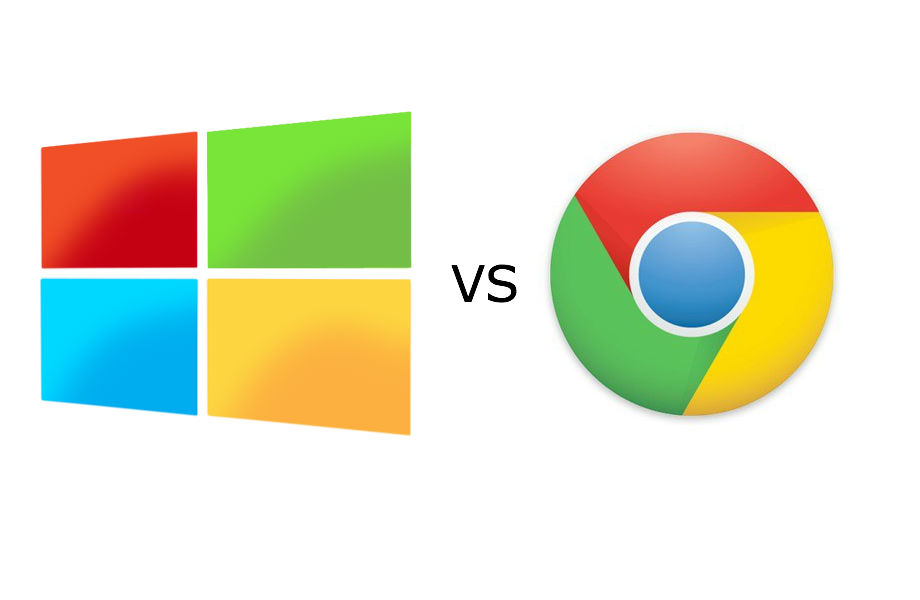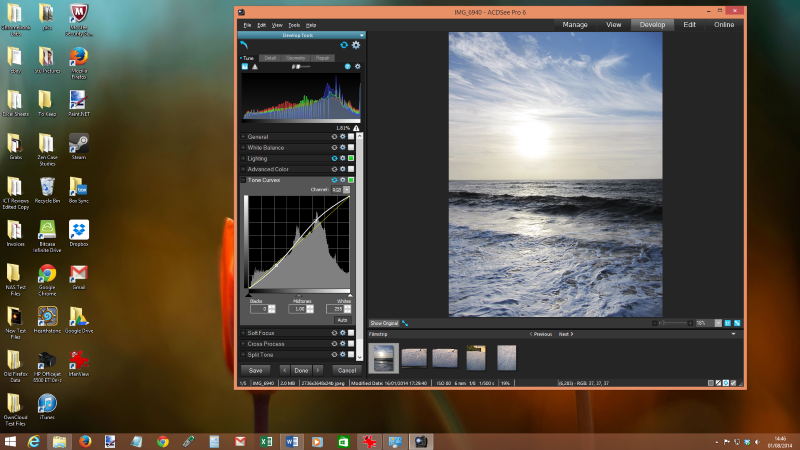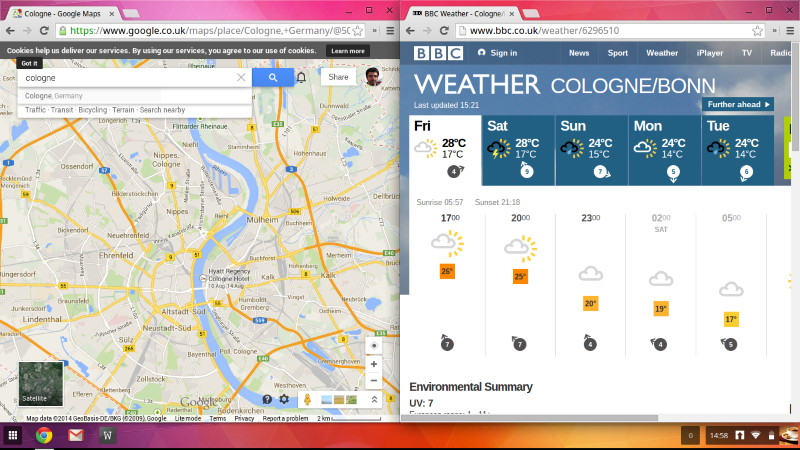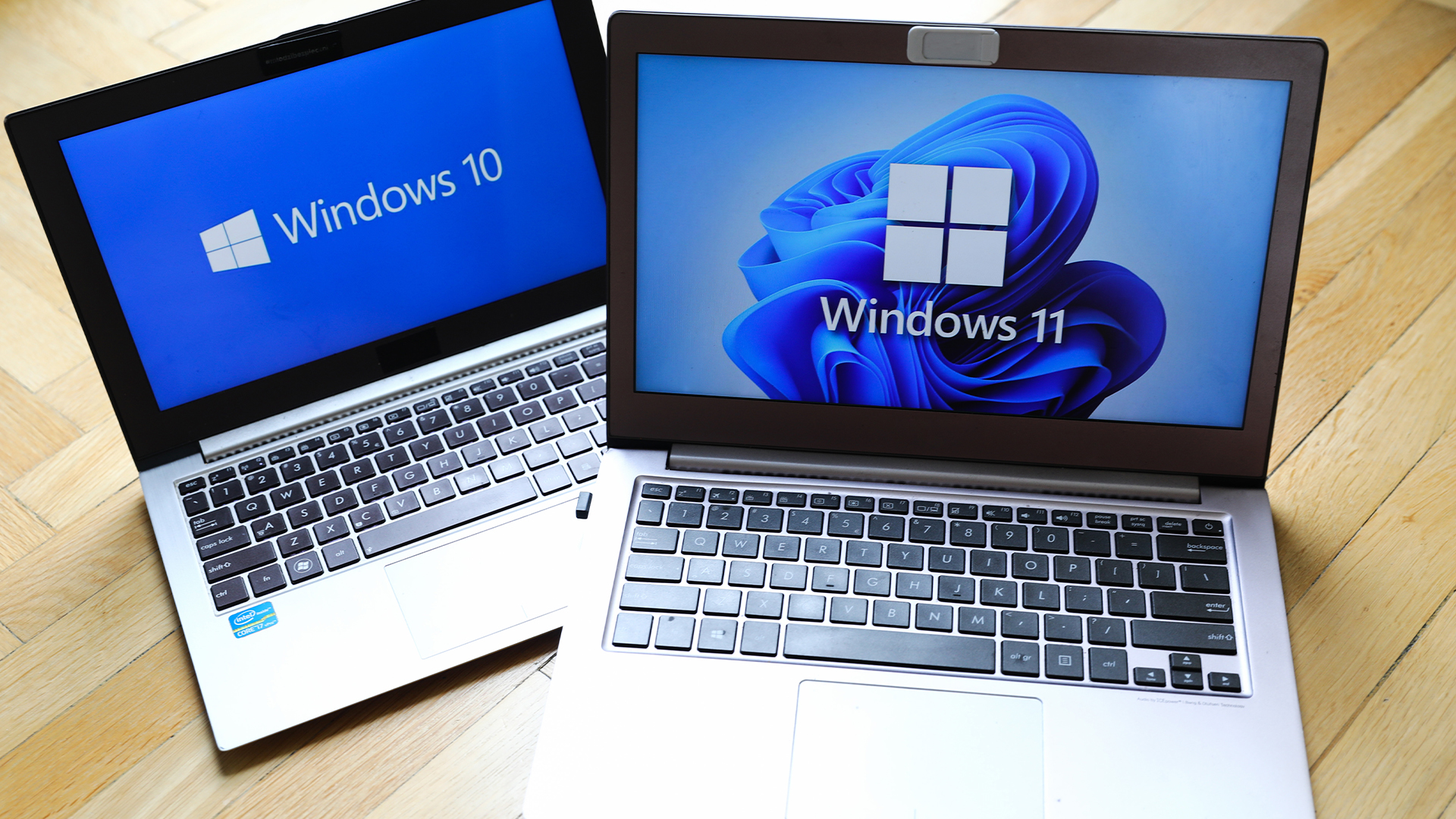Windows 8.1 vs Google Chrome OS review
Can your business save money by using Chrome OS instead of Windows?


Performance
Microsoft continues on its journey to make Windows more memory and power efficient. It will run fine on a variety of hardware from dual and quad-core Bay Trail Atom processors with 2GB of RAM to faster quad-core Pentium and Core chips. Boot times swift with the OS taking between 8 to 20 seconds to boot depending on your hardware configuration. It's a significant improvement over Windows 7, which can take minutes to boot and is on-par with Chrome OS.

Chrome OS devices tend to have modest specifications and the system is runs happily on a modest ARM or Intel architecture processor with 2GB of RAM.
Chrome OS typically boots in less than eight seconds, and even the most basic device won't have problems running simple email and Office apps at the same time. Things slow down when you have a lot of browser tabs or windows open and the few more demanding apps there are on Chrome OS can leave older or slower Chromebooks struggling. For this reason we'd advise looking at models with an Intel Celeron or Core processor to get the best ROI.

Older Chromebooks would struggle to run heavy-duty video-editing, image-editing or even 3D modelling app and perhaps that's why they aren't available. If that's your thing, sticking to Windows is the best idea.
Winner: A Tie. Chrome OS starts up faster and Chromebook is good for the price. Windows 8.1 is snappy, and there's a bigger range of hardware available.
Sign up today and you will receive a free copy of our Future Focus 2025 report - the leading guidance on AI, cybersecurity and other IT challenges as per 700+ senior executives
Stuart has been writing about technology for over 25 years, focusing on PC hardware, enterprise technology, education tech, cloud services and video games. Along the way he’s worked extensively with Windows, MacOS, Linux, Android and Chrome OS devices, and tested everything from laptops to laser printers, graphics cards to gaming headsets.
He’s then written about all this stuff – and more – for outlets, including PC Pro, IT Pro, Expert Reviews and The Sunday Times. He’s also written and edited books on Windows, video games and Scratch programming for younger coders. When he’s not fiddling with tech or playing games, you’ll find him working in the garden, walking, reading or watching films.
You can follow Stuart on Twitter at @SATAndrews.
-
 Windows 10 extended support costs could top $7 billion
Windows 10 extended support costs could top $7 billionNews Enterprises sticking with Windows 10 after the October deadline face huge costs
-
 Tiny11 review: Windows 11 with only 2GB of RAM
Tiny11 review: Windows 11 with only 2GB of RAMReview A version of Windows 11 for older machines that don't meet the full requirements
-
 Red Hat Enterprise Linux becomes foundational operating system for Cohesity Data Cloud
Red Hat Enterprise Linux becomes foundational operating system for Cohesity Data CloudNews New strategic partnership between Red Hat and Cohesity aims to drive innovation in the data security and management space
-
 Ubuntu shifts to four-week update cycle
Ubuntu shifts to four-week update cycleNews Critical fixes will also come every two weeks, mitigating the issues involved with releasing prompt patches on the old three-week cadence
-
 AlmaLinux follows Oracle in ditching RHEL compatibility
AlmaLinux follows Oracle in ditching RHEL compatibilityNews Application binary compatibility is now the aim with 1:1 now dropped
-
 How big is the Windows 10 cliff-edge?
How big is the Windows 10 cliff-edge?ITPro Network With some comparing the upcoming Windows 10 end of life to Windows XP, we ask members of the ITPro Network for their insight
-
 Everything you need to know about the latest Windows 11 updates - from bug fixes to brand-new features
Everything you need to know about the latest Windows 11 updates - from bug fixes to brand-new featuresNews Two new cumulative updates are on the way and will be installed automatically on Windows 10 and Windows 11 machines
-
 How to download a Windows 11 ISO file and perform a clean install
How to download a Windows 11 ISO file and perform a clean installTutorial Use a Windows 11 ISO to install the operating system afresh


